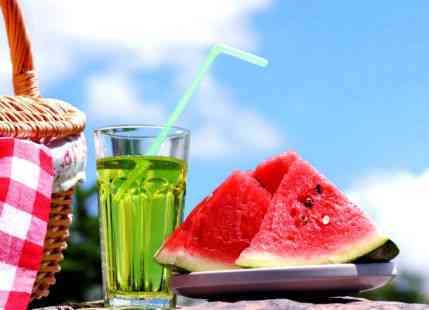Summertime temperatures are harsher and more intense as they go on, frequently setting new records. The unrelenting heat presents serious problems, especially for the elderly, as it affects their vitality, digestion, immune system, and energy levels. Seniors must modify their habits to account for the increasing frequency of high heat and rising temperatures in order to protect their health and well-being during the summer. The following is a list of summertime safety and well-being dos and don’ts for the elderly.
Dos
1. Drink Plenty of Fluids: The hot weather can cause dehydration, which can exacerbate feelings of lethargy. Elderly individuals must drink plenty of fluids, such as coconut water, kokum sherbet, aam panna, buttermilk and lemon water as often as they can avoid heatstroke and other summer illnesses. Additionally, it is essential to monitor water intake and increase it during periods of intense heat or physical activity.
2. Maintain a healthy diet: Encourage the elderly to eat light, well-balanced meals consisting of seasonal fruits, vegetables, nuts, and foods with high water content. These foods help in replenishing electrolytes and maintaining hydration levels.
3. Stay Cool: Avoid direct exposure to the sun, especially during the hottest parts of the day. Seek shade or stay indoors in well-ventilated spaces with air conditioning or fans. Consider using a damp towel or taking cool showers to lower body temperature. Use curtains or blinds to block out direct sunlight and keep rooms cooler.
4. Dress Appropriately: Choose lightweight, loose-fitting, and breathable clothing made from natural fibres like cotton. Light-coloured clothes help reflect sunlight and keep the body cooler. Wearing a wide-brimmed hat and sunglasses provides additional protection from the sun’s rays, reducing the risk of heatstroke or sunburn.
5. Consider Nutritional Supplements: Nutritional supplements can play a crucial role in supporting the health and well-being of elderly individuals throughout the year, including the summer months. While certain supplements are recommended for seniors, such as vitamin D, B6, B12, calcium, and omega-3 fatty acids, it’s important to consult with a healthcare professional or registered dietitian to determine the specific supplements that may be beneficial for you. They can assess your individual needs and provide personalized recommendations to address any potential nutrient deficiencies and support your overall health, irrespective of the season.
Don’ts
1. Avoid alcohol and caffeine: Some older adults have a habit of sipping coffee or alcohol during the day. Remember that dehydration can be exacerbated by both caffeine and alcohol. Limit your intake of these beverages, as they can increase the risk of heat-related problems.
2. Avoid Excessive Sun Exposure: Prolonged exposure to sunrays can lead to sunburn, dehydration, and heat-related illnesses. It is advisable to reduce outdoor activities during the hottest parts of the day, typically between 12 p.m. and 4 p.m. If you must go outside, use sunscreen with a high SPF, wear protective clothing, and stay hydrated.
3. Avoid Heavy, Greasy, and Spicy Foods: Consuming heavy, greasy, or spicy foods can make you feel sluggish and uncomfortable during hot summer days. These foods require more energy for digestion and can lead to indigestion and heartburn.
4. Don’t Overexert Yourself: Engaging in high-intensity exercises or physically demanding tasks during the hottest parts of the day can lead to exhaustion and heat stroke. Encourage seniors to take part in lighter activities or exercises in cooler settings, such as indoor swimming or gentle walks in shaded areas.
5. Don’t ignore warning signs: It is important to be aware of the signs of heat-related illnesses, such as dizziness, confusion, nausea, rapid heartbeat, or excessive sweating. If any of these warning signs manifest, it is imperative to promptly seek medical assistance.
Fitness and nutrition expert Rohit Shelatkar, vice president of Vitabiotics Ltd., states that summertime health issues can impact everyone, but the elderly are particularly vulnerable. Seniors can have a healthier and more active summer by adhering to these dos and don’ts. Seeking assistance from a healthcare practitioner is crucial, as is addressing any particular issues or medical conditions. You can stay energized, safe, and comfortable during the summer with the correct lifestyle changes, which may include adding dietary supplements.
Source:IE







 Finance
Finance







